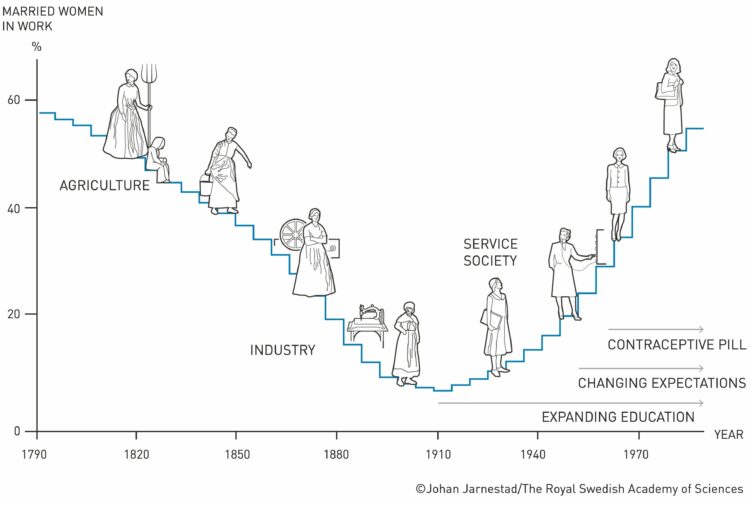Claudia Goldin, an economist at Harvard, has won the Nobel Prize in Economics. A big part of her studies are rooted in the collection and analysis of centuries-old data:
Women are vastly underrepresented in the global labour market and, when they work, they earn less than men. Claudia Goldin has trawled the archives and collected over 200 years of data from the US, allowing her to demonstrate how and why gender differences in earnings and employment rates have changed over time.
Goldin showed that female participation in the labour market did not have an upward trend over this entire period, but instead forms a U-shaped curve. The participation of married women decreased with the transition from an agrarian to an industrial society in the early nineteenth century, but then started to increase with the growth of the service sector in the early twentieth century. Goldin explained this pattern as the result of structural change and evolving social norms regarding women’s responsibilities for home and family.
Amazing.
The illustrations by Johan Jarnestad that accompany the announcement are also really useful.


 Visualize This: The FlowingData Guide to Design, Visualization, and Statistics (2nd Edition)
Visualize This: The FlowingData Guide to Design, Visualization, and Statistics (2nd Edition)
